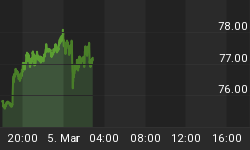In last week's Commentary I promised to share my forecast for the low of the 10/28/13 decline. I call my approach the Hybrid-Lindsay method as it uses the concept of Middle Sections which were developed by George Lindsay in his seminal paper "An Aid to Timing". Using Middle Sections tells us whether to expect the forecast date to be a high or a low. I combine this approach with what Lindsay called "intervals of equidistance". These are similar to cycles except that they can stretch from high-to-low or low-to-high and not just low-to-low as cycles are normally thought of.
Figure 1 shows two separate intervals converging on Monday, 11/11/13. A 27 day interval and a 93 day interval; the 93-day interval actually focuses on last Friday, 11/8/13. From this information we know to expect a turn date but don't know whether it is to be a high or a low - of course we had a pretty good idea by Friday.
In Figure 2 we can see that the high of a flattened top occurred on 6/3/09.
Figure 3 shows that this high stretches 811 days to the top of the bull market on 8/23/11 and 811 days later is... yesterday - a forecast for a low. This is low is not expected to be the final low of the 2011 bear market for gold.
Request a "sneak-peek" (trial subscription) at Seattle Technical Advisors.com



















